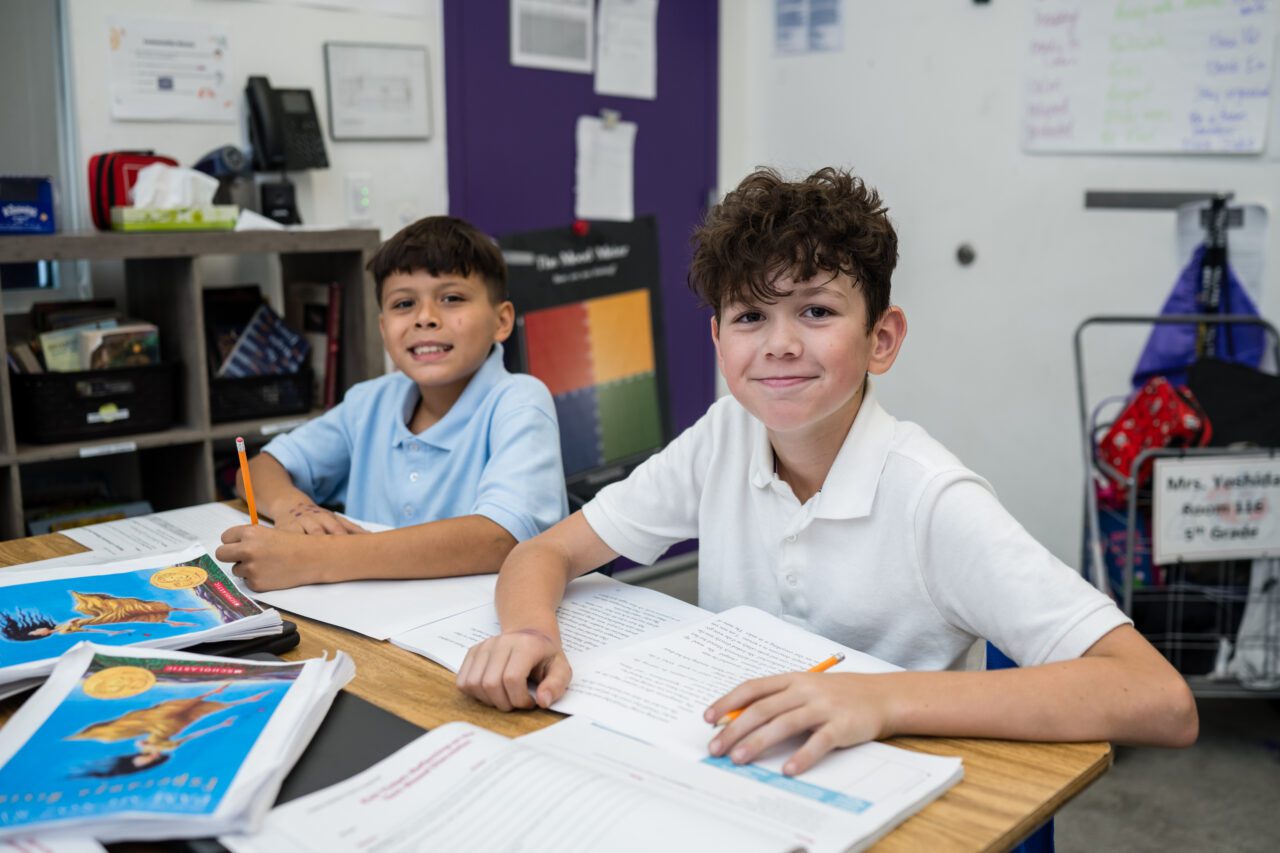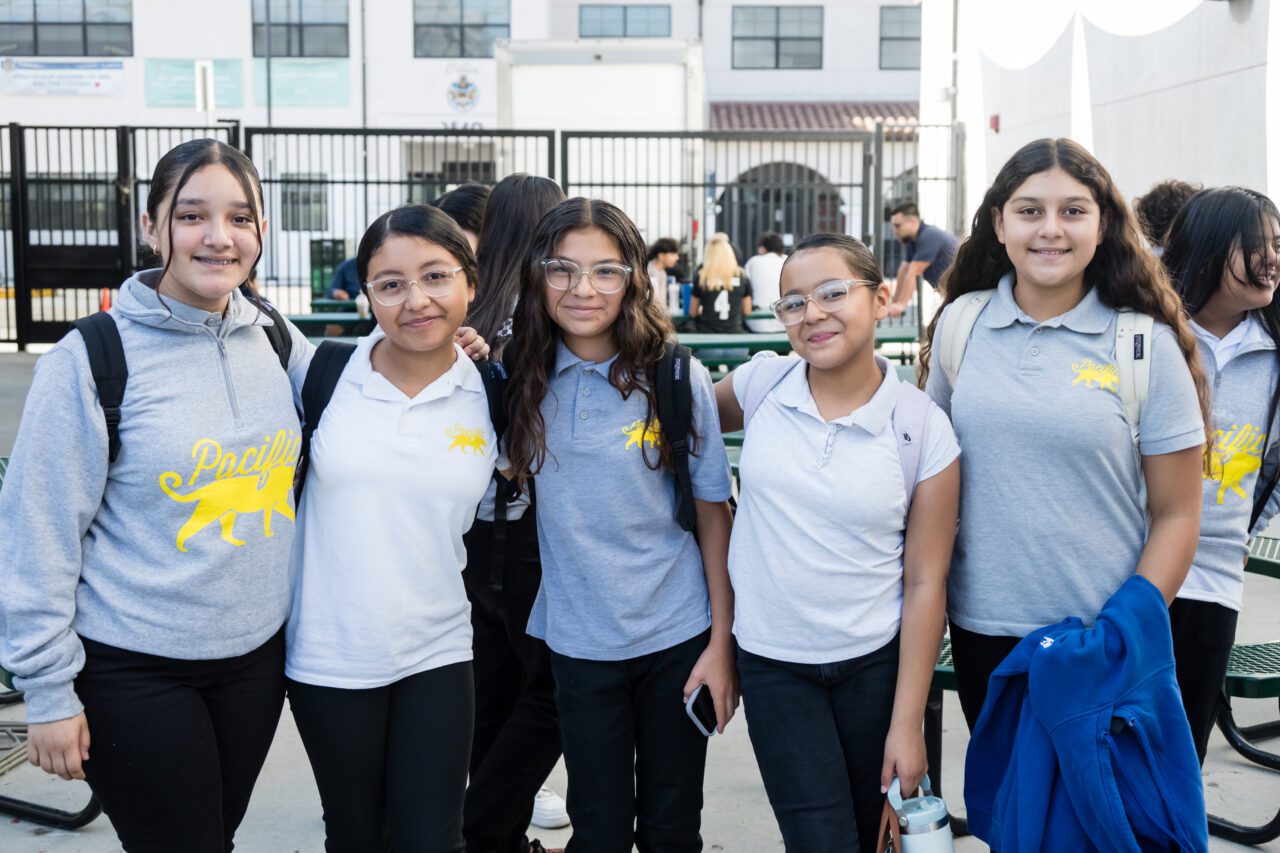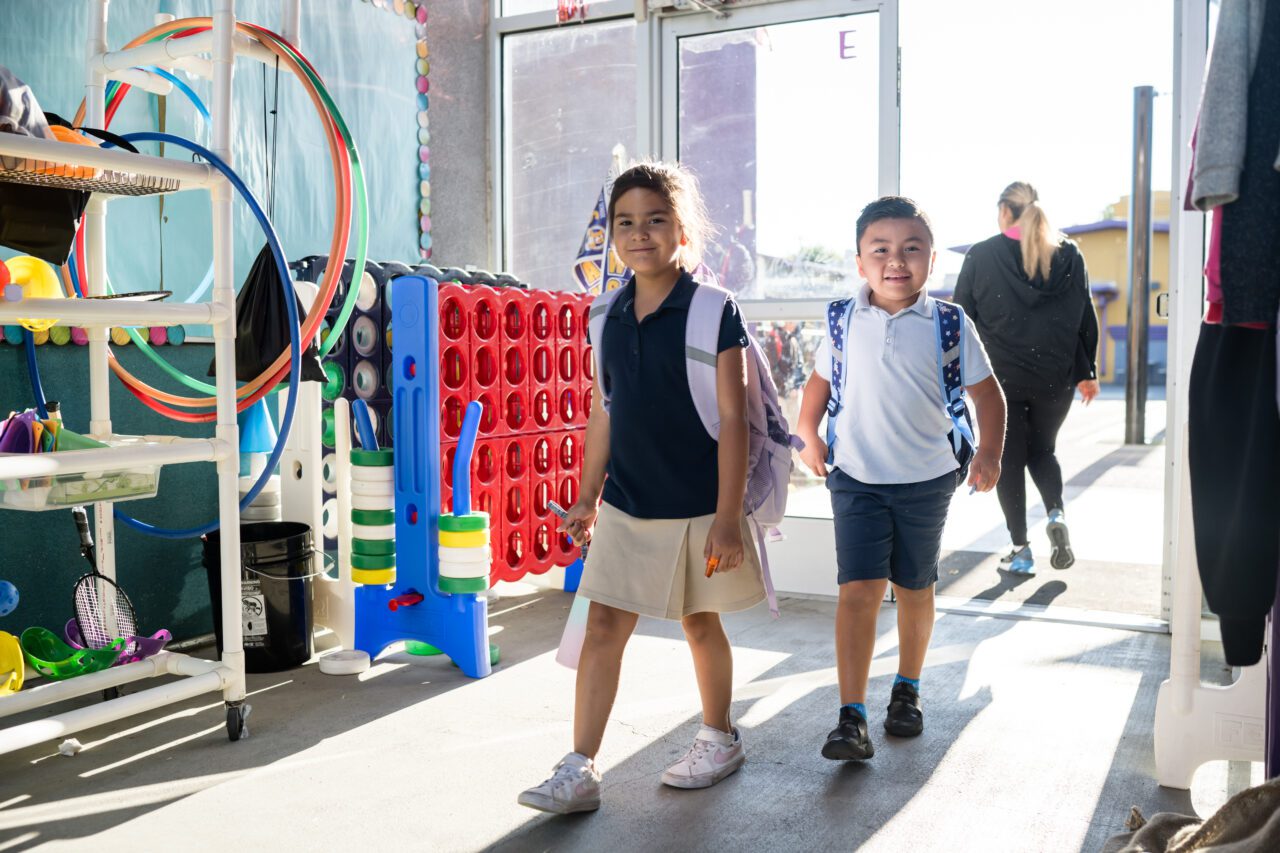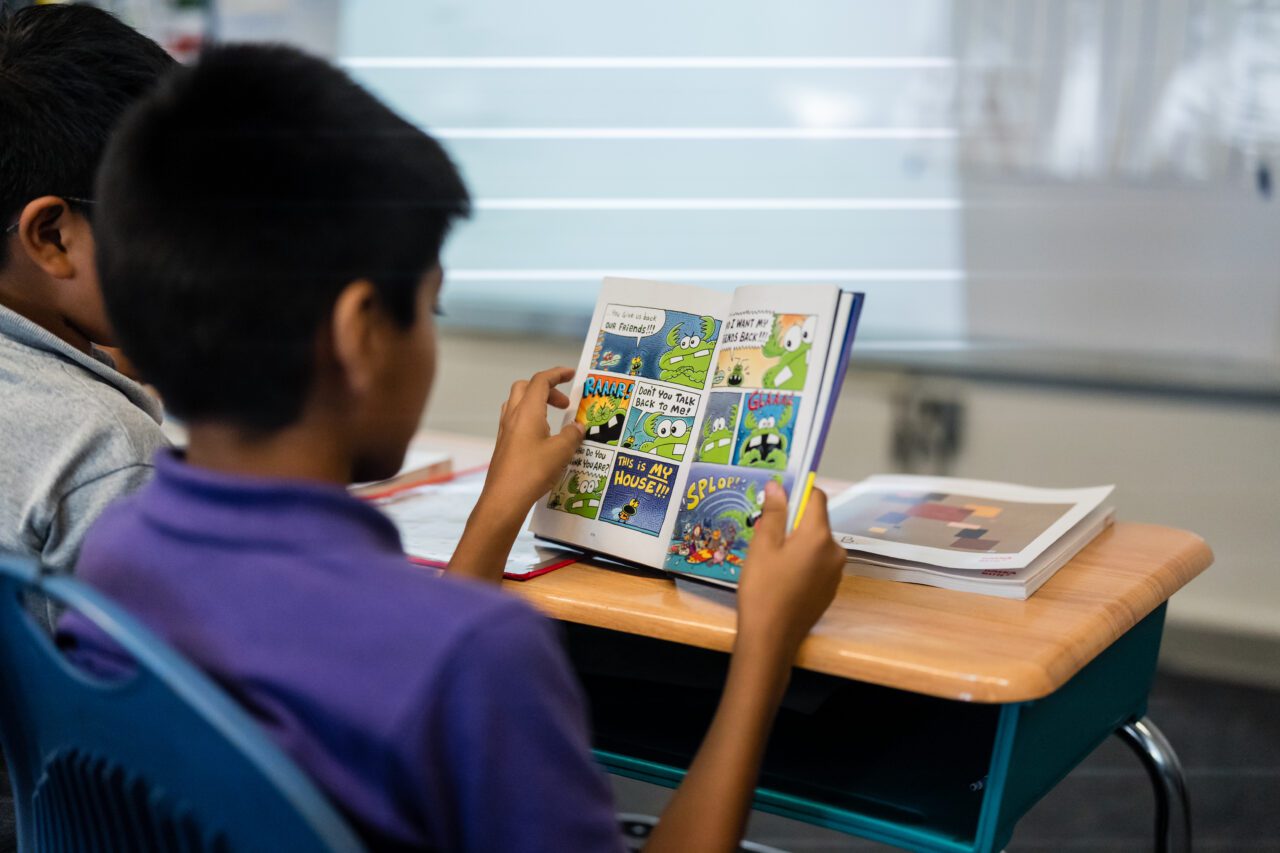Instructional Approach
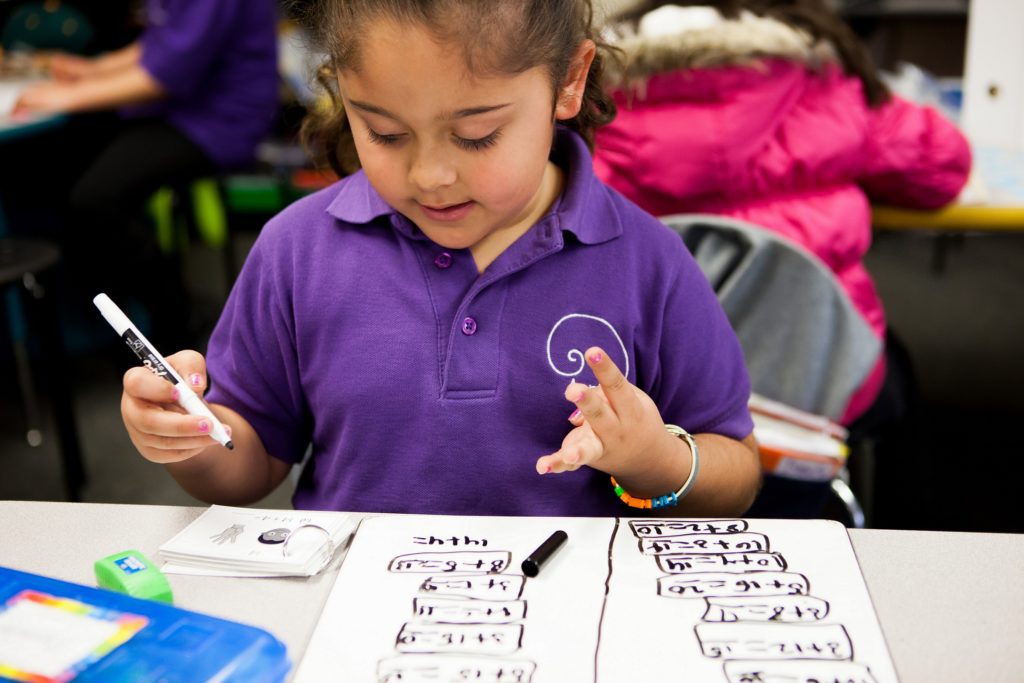
Instructional Approach
Through rigorous, standards-based, and culturally responsive academic programs, we support all students in developing the skills and mindset they need to succeed in creating opportunities for themselves, their families, and our communities.
Beginning in kindergarten, students are inspired to pursue college or any post-secondary pathway that is authentic to their identities. Teachers and principals proudly share their college and career experiences, challenges, and accomplishments. We nurture our scholars’ pride in their abilities, identities, and communities.
Our schools are intentionally kept small to create a strong community where each student is known personally, and they provide roughly 10-15% more learning time for students than in traditional public school settings.
Though programming may slightly vary per region, our Aspire-wide, Common Core instructional approach across all 36 schools facilitates stronger teacher training, more opportunities for collaboration, more consistency of the student experience, and ultimately, stronger academic outcomes across Aspire.
Additionally, all educators within Aspire are developed through our updated Aspire Student Learning Framework (ASLF). They receive consistent coaching and feedback using the ASLF. This framework is a coaching tool that is grounded in three principles:
1. An explicit focus on student academic behaviors
2. Alignment of instructional activities to rigorous content standards
3. Culturally responsive teaching
Variable Content
Featured programs:
Aspire’s Math Vision:
All Aspire scholars have the right and ability to become confident, independent mathematical thinkers and problem solvers. Our collective responsibility is to provide a math instruction program that will prepare students for college and career, and empower them with the knowledge and skills needed to use math to tackle problems that matter to them in their lives and communities.
Aspire’s Social Emotional Learning:
Aspire supports our students’ social and emotional development to be caring and productive citizens. We engage in culturally responsive and equitable practices in our communities of students, families, and teammates to cultivate the following lifelong skills in each Aspire scholar and educator: managing emotions and behaviors, feeling and expressing empathy and compassion for others, making responsible decisions, and setting and achieving positive goals
Authentic experiences:
In the early elementary grades at Aspire schools, students learn literacy skills through authentic reading and writing experiences, including shared reading, guided reading, independent reading, shared writing, interactive writing, writing workshops, and independent writing. In the older elementary grades at Aspire schools, students focus on “reading to learn,” through reciprocal teaching, close reading, literature circles, and the use of both non-fiction books and classical literature. Students also learn by applying the scientific method to hands-on experiments and interacting with others on community issues.
Career Pathway Exploration and Early College High School:
Students in grades 9-12 have the opportunity to explore future career pathway opportunities through a variety of experiences, including internships. Our high school graduation requirements include that every student takes and passes multiple community colleges and/or 4-year college courses to earn college credits, get college exposure and practice, explore potential majors and careers, and build confidence and context for post-secondary studies.
Expanded Learning (ExL):
Expanded Learning (ExL) is Aspire’s after-school program, available for grades TK-9. ExL programs support college readiness through academic and enrichment programming that meets the unique needs of our scholars, sparks interest in new skills/careers/passions, and engages families as partners. ExL educators and directors from the community are developed, trained, and empowered to implement research-based strategies, terminate inequitable practices, and follow pathways to leadership.
